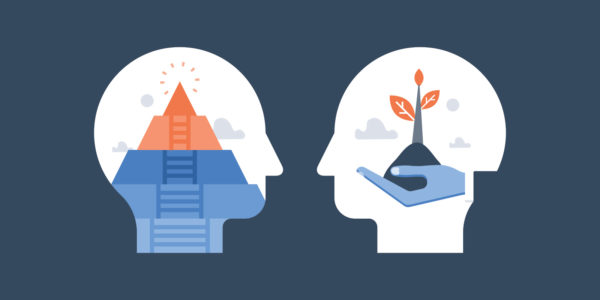How Positive Thinking can Make You More Productive, More Resilient, and Smarter

Ask yourself the following question, and then listen up – because this is really important. Do you think you’d be happier if you were more successful? If you answered yes, then you, especially, need to read on. Research shows it isn’t quite that simple.
In reality, it’s the other way around: You’d probably be more successful if you were happier.
Future Happiness
“People often project happiness into the future, believing they’d be happy if they could only own a certain thing or have a certain experience,” says one expert and researcher who consults to Fortune 500 companies. “But, when we get the things we said we wanted, the happiness we expected is often elusive. It’s because our brains operate in the opposite order. This science could create a cultural revolution, because it’s showing us that happiness isn’t about getting to point ‘A’ or point ‘B.’ It’s about the attitude you bring to your everyday work.”
This expert helped design a famed happiness course – at one time the most popular course at Harvard University – and then went on to create a study that measured the connection between positivity and production in a group of managers over a four-month period. The study suggested that, to a large degree, happiness is a learned behavior. Managers who were trained in positive psychology showed significant increases in optimism – one of the greatest indicators of performance and success.
Extensive studies have shown that employees with high levels of life satisfaction are more productive, take fewer sick days, and are more resilient in the face of a challenge.
“Positive-psychology training creates a clear return on investment,” says the expert. “If your employees raise their levels of positivity, their production levels will rise also.”
Think Better
Happiness doesn’t just feel good; it also improves thinking due to the broaden-and-build effect. “When we’re stressed, our brains narrow to the point that we can see only two possible actions: fight or flee,” he says. “But a happy brain can think of more solutions. When a brain is positive, it perceives more possibilities and builds more networks – coming up with innovative and creative strategies to cope with the challenges it faces. In many ways, a happy brain is a smarter brain simply because it uses more of its potential.”
How can managers create a happy-brain environment in the workplace? The answer is simple: Give your employees more recognition and praise.
“Research shows that, if a manager praises or recognizes just one person a day, over the course of a month his or her team will experience a 31% rise in productivity,” he says. “We found this to be true even in such industries as coal mining, where people don’t tend to be verbal and the attitude is often, ‘No news is good news.’ But people want to believe that their behavior matters, and, when their manager recognizes their accomplishments on a regular basis, this teaches them that, yes, what they do has an impact on the team, that their efforts are noticed and acknowledged. It takes maybe 30 seconds a day to do, and it sets up a waterfall of success.”
Of course, not everyone works in a positive environment, but the expert says it’s quite possible to keep your brain happy even when you’re surrounded by gloom. “Only 10% of happiness depends on our external world,” he says. “The other 90% depends on how our brain processes the world. Instead of scanning the world for problems, mistakes, and dangers, positive thinkers focus on things to be grateful for or ways to make the situation better.”
Four Ways to Start Building Happiness
The expert offers four tips for training your brain to be happy.
- Each night, write down three things for which you’re grateful. Be specific. Don’t just write, “my children.” Instead, list the funny remark your daughter said at dinner. Gratitude moves your brain onto neural tracks that scan the world for things that make you happy.
- Maximize your strengths. “We think the best way to get ahead is to focus on our weaknesses and learn how to overcome them,” he explains. “If, instead, we focused on a strength every day, we would feel more engaged in routine tasks. As your investment in the day goes up, your creativity rises with it. What are you best at? Re-craft a daily task to use that strength.”
- Journaling about recent positive experiences helps you make a connection with the most meaningful parts of your day. “After 21 days,” he says, “our brain starts to connect the dots. It begins to wrap around the things that mean the most – to notice the activities that translate into deeper satisfaction and meaning.”
- Meditate, even if just for five minutes a day. “We all think we need to multitask to be more successful,” cautions the expert, “but, if you do two tasks at once, your stress level rises and your productivity level drops for both tasks. Meditation slows our mind down to the present moment.”
Get our Enewsletter
Get the latest sales leadership insight, strategies, and best practices delivered weekly to your inbox.
Sign up NOW →